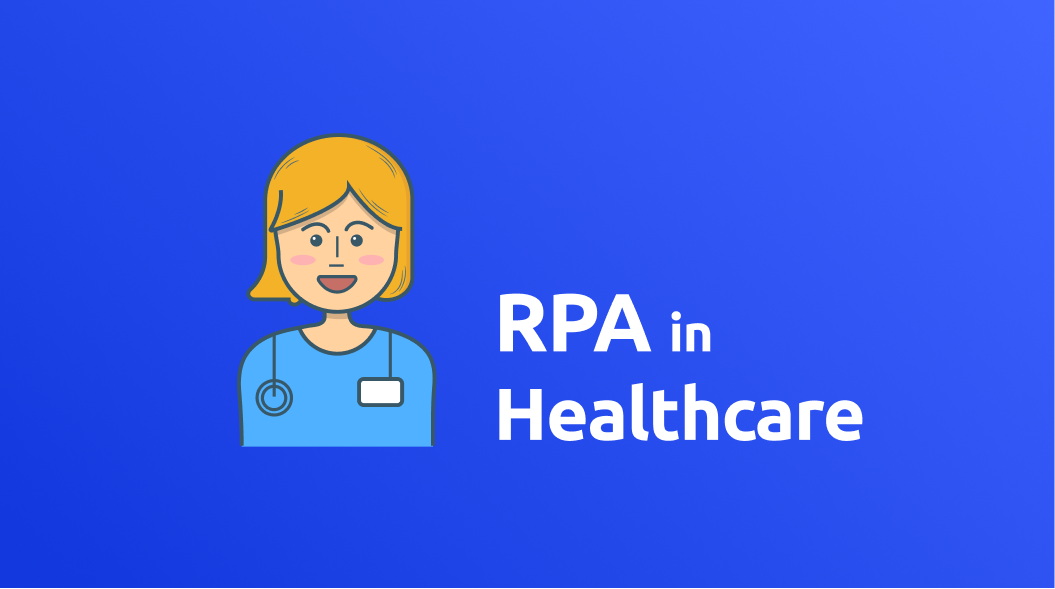Challenges in dealing with data in healthcare industries are rapidly increasing. Minor errors with healthcare data can have an adverse effect on the patients. RPA can take care of these issues and help the health care industries to deliver efficient service to the patients.
Billing and report preparations
According to the report by McKinsey & Company, more than one-third of the tasks in the billing can be automated. RPA strengthens the billing process by easily adapting to the changes that occur during every billing cycle which is hard manually. It automates accounts payable process and time-consuming data digitization. RPA can adapt to scalability, provide consistent efficiency 24/7.
Healthcare industries deal with a lot of report submissions to state, federal and other independent agencies like CMS, Medicaid, NCQA on a periodic basis and the count of reports increase if the payer is an MCO (Managed Care Organization). This is a tiresome and highly difficult for humans to perform. RPA is the right fit for the process to make it simple and efficient.
Mediclaim
Mediclaim processing is one of the labor-intensive and a highly tedious process due to which some hospitals and medical firms even prefer outsourcing companies to manage medical data. With a system like RPA in place, the process can be simplified and the speed of these kinds of processes can be increased.
Every year the healthcare payers are losing on an average of $3.2 billion due to errors in the manual processes**.** Some of the manual processes include checking and fixing claim for member eligibility, duplicate claims, timely filing, searching and extracting data from different systems (claims history, referrals, etc). These processes are routine and require humongous effort. RPA can automate these tasks saving a huge amount of human effort and time.
Healthcare supply chain
Healthcare supply chains are the areas that contain a significant number of repetitive tasks and manual integrations for paying, receiving and, for performing clinical integration processes. These processes influence a widespread of functions.
Robotic Process Automation (RPA), when introduced to the health care supply chain, increases the level of quality, productivity, and efficiency of the manual process. Before applying RPA to healthcare supply chains, assess end to end processes and perform activity analysis to find the process that is the best fit for automation. Once the right processes for automation are identified, you can begin building the roadmap. Start the RPA implementation slowly. First, use 4-6 bots and test the performance. Once RPA gains comfort with the processes, you can start extending automation throughout the supply chain.
RPA bots can mimic a large number of human work which results in reduced cost particularly more savings over traditional off-shoring and business process outsourcing (BPO) and errors. RPA can be used to bridge the gaps within and across applications (e.g.ERP, workflow) and between the supply chain and revenue cycle. It also helps in increasing employee morale by re-defining and reassigning employees to higher value-added tasks.
Patient management
Significant increase in the number of patients is increasing the number of challenges in dealing with patient data. Various repetitive tasks involving patient interaction such as patient onboarding, patient scheduling, patient data management can be automated. RPA enables higher throughput even dealing with huge volumes of data.
Another area where time is saved is managing memberships of a hospital. Example, creating accounts, eligibility verification, process enrollments, managing benefits, etc. These will take loads of your time if performed manually resulting in immense waiting time for patients resulting in irritation and declining client satisfaction. If these processes are automated, work is going to be quick, waiting time is going to be reduced achieving service satisfaction from patients.
Physician credentialing
RPA can automate 90% of the day-to-day physician credentialing process. Physician credentialing is a crucial business activity. It involves sensitive information and tumultuous processes which mainly involves the verification of the physician information.
The process checks and reviews a number of external sources and websites to verify the license, exclusions, insurance, education, certificates, documents, professional records, etc of the physician. This could be easily achieved with RPA's automated crawling and scraping capabilities.
Improved Healthcare cycle
Healthcare suppliers collect enormous volumes of patient information like their personal data, diagnosis, and treatment cycles. Since the amount of information is abundant, extracting and optimizing such information for analysis will be tedious and complex. Also, the degree of information keeps increasing daily with newer patients and disorders. Hence, health care suppliers could extract and optimize information perpetually.
RPA program will record and monitor more and more volumes of information effortlessly. With the assistance of RPA in health care services, hospitals and clinics will optimize and extract their information to come up with analytics with the assistance of alternative digital systems. Such analytics can provide profound insights into identification strategies and different types of treatments. Such insights help health care suppliers to deliver correct and well-tailored treatments. With this approach, health care suppliers will simply track and analyze large volumes of information and pay a majority of their time in attending and serving their patients.
With the proper knowledge of identifying and automating the right tasks, and an efficient implementation strategy will transform the healthcare industry to provide the best patient care. Many of us would have dreamt of becoming doctors in our childhood, find the right tasks in the health care industries and automate it.
Though you couldn't become a doctor, you can help doctors serve patients better.
